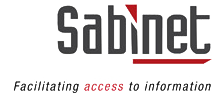President Cyril Ramaphosa’s State of the Nation Address (SONA) on 10 February 2022 highlighted some key issues requiring attention. Most notable were his commitment to cut red tape constraining business, to boost infrastructure investment and to continue with reform.
“Business sentiment on SONA was mixed, if not slightly disappointed at the lack of urgency to accelerate reform and infrastructure improvement,” says Sabinet Managing Director, Rosalind Hattingh. “The good news was the cutting of red tape to unblock obstacles to investment and business growth. Regulations and legislation are, however, designed to govern the way business is conducted.”
We list below a summary of some of the salient topics covered in SONA. Sabinet Discover has every Act, as well as updated, relevant topics relating to the Acts at https://discover.sabinet.co.za.
1. National state of disaster – President Cyril Ramaphosa announced: “It is our intention to end the national state of disaster as soon as we have finalised other measures under the National Health Act and other legislation to contain the pandemic.”
2. Critical skills – The revised Critical Skills List was published for the first time since 2014, following detailed technical work and extensive consultations with business and labour. The updated list reflects the skills that are in shortage today, to ensure that our immigration policy matches the demands of our economy.
A comprehensive review of the work visa system is currently under way, led by former Director-General of Home Affairs, Mavuso Msimang. This review is exploring the possibility of new visa categories that could enable economic growth, such as a start-up visa and a remote working visa.
3. Water – A comprehensive turnaround plan is being implemented to streamline the process for water use licence applications. The target is to clear the backlog of applications by June 2022 and to process 80% of all applications within 90 days during the next financial year. Legislation has been prepared for the establishment of the National Water Resources Infrastructure Agency and will be published for public comment within the next month.
4. Cannabis – Government is going to fast-track regulations for the cannabis industry in South Africa. Government will review the policy and regulatory framework for industrial hemp and cannabis to realise the huge potential for investment and job creation. Hemp and cannabis production can create 130 000 new jobs.
The Cannabis for Private Purposes Bill is still making its way through Parliament, following its introduction in September 2020. The Bill outlines possession rules for cannabis users at home and people who wish to cultivate the plant. It also introduces new offences and provisions for people who were previously slapped with a criminal record for cannabis possession. All information regarding cannabis and current legislation can be found at https://legal.sabinet.co.za/legislation/cannabis-for-private-purposes/.
5. Business Act 71 of 1991 – Government is reviewing the Business Act, alongside a broader review of legislation that affects SMEs. This is to reduce the regulatory burden on informal business. There are too many regulations in this country that are unduly complicated, costly and difficult to comply with, preventing companies from growing and creating jobs. Government is working to improve the business environment for companies of all sizes through a dedicated capacity in the Presidency to reduce red tape. The red tape team will identify priority reforms for the year ahead, including mechanisms to ensure government departments pay suppliers within the required 30 days.
6. Climate change – At the international climate conference in Glasgow last November, South Africa struck a historic R131 billion deal with the European Union, France, Germany, United Kingdom and the United States. A Presidential Climate Finance Task Team will lead the mobilisation of funds for this transition.
Sabinet Discover is the ultimate information services tool, providing access to up-to-date information related to all sectors of government, the law, news and research. The platform allows subscribers and non-subscribers to discover and effortlessly access Sabinet's information services. By doing this, Sabinet aims to provide a holistic overview of the goings on of our country and, as such, will continue to share relevant, unbiased and, most importantly, reputable sources of information with those who need them.
